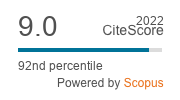The human body is exposed to many xenobiotic, potentially harmful compounds. The intestinal immune system is crucial in protecting the human body from these substances. Moreover, many microorganisms, residing in the gastrointestinal tract, play an important role in modulating immune responses. Pre- and probiotics may have beneficial effects on the microbial composition and activity within the human gut, subsequently affecting the immune system. Prebiotics can exert their effects via different mechanisms, like selectively stimulating the growth of bacteria by providing substrates or via direct immune stimulation. Probiotics may have beneficial health effects via competition with pathogens for substrates and binding intestinal sites, bioconversions of for example sugars into fermentation products with inhibitory properties, production of growth substrates like vitamins for the host, direct antagonism of pathogens via antimicrobial peptide production, reduction of inflammation and stimulation of immune cells. This review focuses on the different mechanisms via which the pre- and probiotics exert their beneficial effects on the host, addressing their immunomodulatory properties in particular.
REVIEW ARTICLE
Mechanisms and immunomodulatory properties of pre- and probiotics
V.B.M. Peters Related information
1TNO Zeist, Department Microbiology and Systems Biology, Utrechtseweg 48, 3704 HE Zeist, the Netherlands.
2University College London, Division of Medicine, Gower Street, WC1E 6BT London, United Kingdom.
*Corresponding author: vera.
, E. van de Steeg Related information2University College London, Division of Medicine, Gower Street, WC1E 6BT London, United Kingdom.
*Corresponding author: vera.
1TNO Zeist, Department Microbiology and Systems Biology, Utrechtseweg 48, 3704 HE Zeist, the Netherlands.
, J. van Bilsen Related information3TNO Zeist, Department Risk Analysis for Products in Development (RAPID), Utrechtseweg 48, 3704 HE Zeist, the Netherlands.
, M. Meijerink Related information3TNO Zeist, Department Risk Analysis for Products in Development (RAPID), Utrechtseweg 48, 3704 HE Zeist, the Netherlands.
Beneficial Microbes: 10
(3)- Pages: 225 - 236
Published Online: March 04, 2019
Abstract
2022 Journal Impact Factor
5.4
source: Journal Impact Factor 2023™ from Clarivate™

Institutional Offers
For institutional orders, please contact [email protected].
-
A.A. Hibberd, C.C. Yde, M.L. Ziegler, A.H. Honoré, M.T. Saarinen, S. Lahtinen, B. Stahl, H.M. Jensen and L.K. Stenman
-
E.E. Blaak, E.E. Canfora, S. Theis, G. Frost, A.K. Groen, G. Mithieux, A. Nauta, K. Scott, B. Stahl, J. van Harsselaar, R. van Tol, E.E. Vaughan and K. Verbeke
-
K. Venema, J. Verhoeven, C. Beckman and D. Keller
-
E. Arvidsson Nordström, C. Teixeira, C. Montelius, B. Jeppsson and N. Larsson
-
J.E. Haarhuis, A. Kardinaal and G.A.M. Kortman
-
E.E. Blaak, E.E. Canfora, S. Theis, G. Frost, A.K. Groen, G. Mithieux, A. Nauta, K. Scott, B. Stahl, J. van Harsselaar, R. van Tol, E.E. Vaughan and K. Verbeke
-
K. Lippert, L. Kedenko, L. Antonielli, I. Kedenko, C. Gemeier, M. Leitner, A. Kautzky-Willer, B. Paulweber and E. Hackl
-
K. Tsilingiri and M. Rescigno
-
M. Ozen and E.C. Dinleyici
-
Y. Kobayashi, T. Kuhara, M. Oki and J.-Z. Xiao



